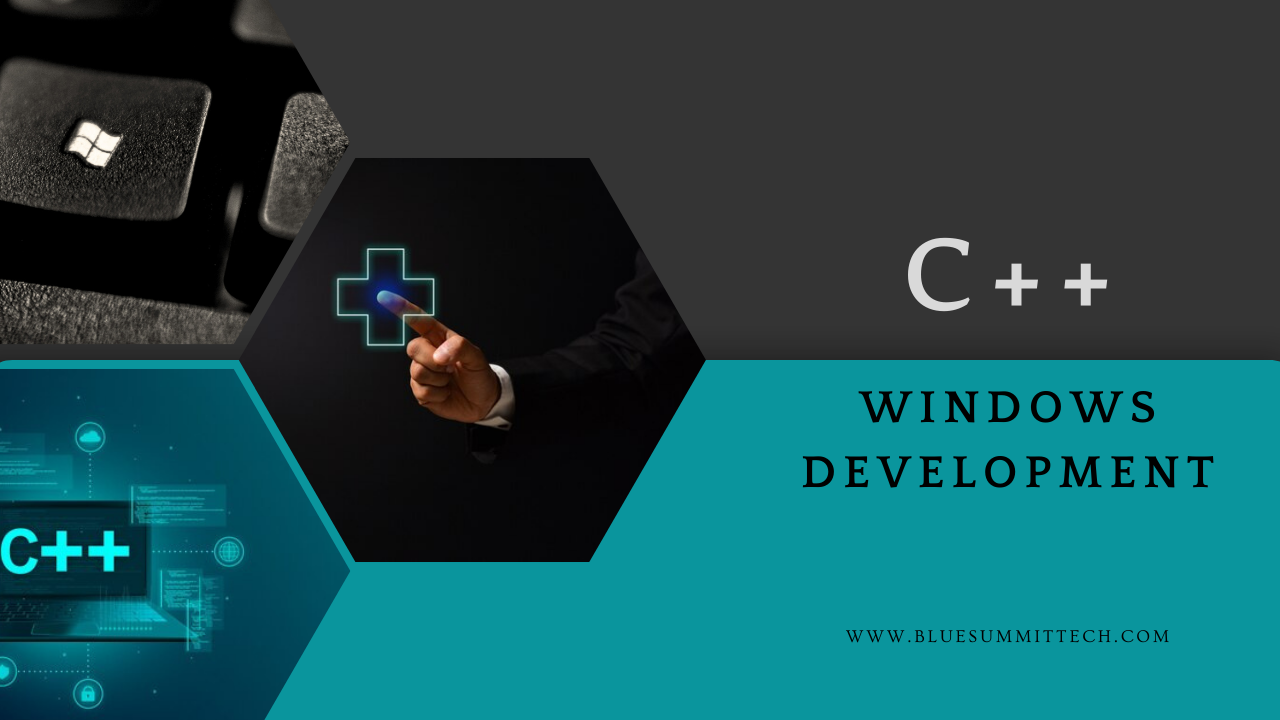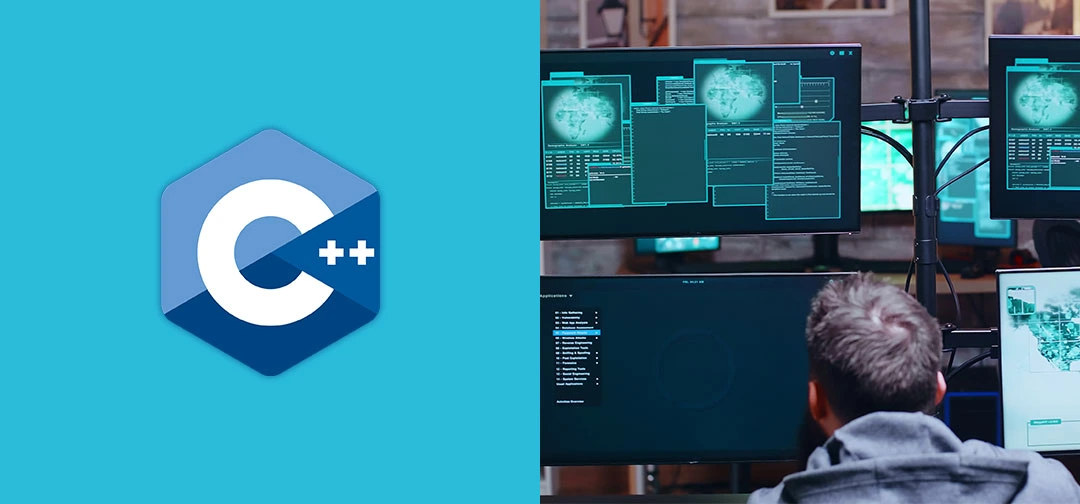
Posted on Monday, May 22nd, 2023
Driving Innovation with C++ Windows Development
In the realm of software development, desktop applications hold immense significance in delivering robust and feature-rich solutions to users. Leveraging the versatility and efficiency of the C++ programming language, developers embark on an exciting journey of creating cutting-edge desktop applications for the Windows platform. This blog delves into the world of C++ Windows development, shedding light on the benefits, tools, and resources available to empower developers in crafting innovative and high-performance applications on the Windows operating system.
Unveiling C++ Windows Development
Windows C++ development revolves around the creation of desktop applications tailored specifically for the Windows operating system, employing the prowess of the C++ programming language. At the core of Windows development lies the Win32 API, an extensive and well-documented API that serves as the gateway for developers to access underlying operating system functionalities. By harnessing the capabilities of the Win32 API, developers gain unprecedented control and performance to craft applications that seamlessly integrate with the Windows ecosystem.The Win32 API, also known as the Windows API, presents a rich spectrum of features and services, encompassing window management, user interface controls, file operations, networking, and much more. Developers embarking on C++ Windows development can leverage the comprehensive capabilities of the Win32 API to tap into the full potential of the Windows platform. This unlocks a world of possibilities for creating highly functional and efficient applications that seamlessly interact with the underlying operating system.
Benefits of C++ Windows Development
Unparalleled Performance
C++ shines in delivering highly efficient and lightning-fast applications. With its low-level access to hardware resources, direct memory manipulation, and optimized code execution, C++ excels in resource-intensive desktop applications. This performance advantage makes C++ an ideal choice for real-time processing, complex calculations, and high-speed data manipulation, ensuring optimal user experiences.Seamless Platform Integration
C++ Windows development offers seamless integration with various Windows components, thanks to the powerful Win32 API. Developers can effortlessly interact with the Windows registry, file system, network stack, and user interface elements, enabling the creation of applications that fully leverage the capabilities of the Windows platform. This deep integration results in native and feature-rich experiences for users.Extensive Compatibility
C++ applications enjoy broad compatibility across different versions of the Windows operating system, requiring minimal modifications. The backward compatibility of Windows and the stability of the Win32 API ensure smooth execution of C++ desktop applications across a wide range of Windows environments. This compatibility advantage allows developers to reach a vast user base without concerns about compatibility issues or disruptive changes, facilitating wider deployment opportunities.Essential Tools for C++ Windows Development
1. Integrated Development Environments (IDEs)
This plays a pivotal role in enabling efficient and productive C++ Windows development. Microsoft Visual Studio stands out as a highly popular IDE for Windows development. With its robust features encompassing advanced code editing, debugging capabilities, project management tools, and seamless integration with Windows SDKs, Visual Studio provides an intuitive interface and extensive documentation, making it an ideal choice for developers venturing into C++ Windows development.2. Compilers
These are essential for building and compiling C++ applications on the Windows platform. Developers rely on the Windows Software Development Kit (SDK), which encompasses the necessary tools and compilers. The Microsoft C++ Compiler (MSVC) takes center stage as the primary compiler utilized for Windows development. MSVC offers optimizations, compatibility with the Windows ecosystem, and support for the latest C++ language standards, empowering developers to create high-performance and reliable applications.3. Win32 API Documentation
The Win32 API documentation serves as an invaluable resource for C++ Windows developers. It provides comprehensive information about functions, data types, structures, and constants required for Windows development. The documentation offers detailed explanations, usage examples, and guidelines for effectively utilizing the Win32 API. Acting as a reliable reference, it equips developers with the knowledge needed to leverage the extensive capabilities of the Windows platform and seamlessly implement them in their applications.4. Debugging Tools
Windows offers powerful debugging tools that aid in the development and troubleshooting of C++ applications. The Visual Studio debugger empowers developers to step through code, inspect variables, set breakpoints, and analyze application behavior. Additionally, tools such as WinDbg and Process Monitor provide advanced debugging capabilities for diagnosing complex issues, ensuring the creation of robust and error-free C++ Windows applications.Windows UI Frameworks for C++
i. Microsoft Foundation Classes (MFC)
MFC, developed by Microsoft, is a C++ framework designed to streamline Windows UI development. It offers a collection of classes and libraries that simplify the creation of GUI-based applications, encompassing dialog boxes, controls, and event handling. By abstracting the complexities of the Win32 API, MFC enables developers to focus on application logic and user interface design. Although MFC has been around for some time, it remains a viable choice for C++ Windows development, particularly for legacy applications or projects requiring direct Win32 API access.ii. WinForms
WinForms is a UI framework that allows developers to build Windows desktop applications using C++ with the .NET framework. WinForms provides a drag-and-drop designer and an extensive set of controls, making UI development more accessible and efficient. It simplifies the creation of user interfaces through event-driven programming, abstracting low-level details. WinForms applications run on the .NET Common Language Runtime (CLR), enabling easier integration with other .NET languages and libraries.iii. Additional Frameworks
In addition to MFC and WinForms, developers have the option to explore other C++ UI frameworks such as Qt and wxWidgets. Qt is a widely used cross-platform framework that supports C++ development and offers an extensive array of features, including a comprehensive UI toolkit, networking capabilities, database connectivity, and more. On the other hand, wxWidgets provides C++ developers with a native look and feel across multiple operating systems, including Windows.Additional Resources and Communities
Microsoft Developer Network (MSDN)
This is a comprehensive resource hub provided by Microsoft, offering a wealth of documentation, tutorials, code samples, and forums specifically tailored for C++ Windows development. It serves as a go-to platform for accessing official Microsoft resources, including API documentation, best practices, and design guidelines. MSDN is an invaluable resource for staying updated with the latest developments in Windows application development.Stack Overflow
This is a widely popular online community for developers, provides a vast repository of knowledge and a platform for asking questions and finding answers related to C++ Windows development. It serves as an excellent resource for troubleshooting issues, seeking guidance, and learning from experienced developers. Active participation in relevant C++ and Windows-specific tags fosters connections within the developer community and facilitates knowledge sharing.GitHub
This is a renowned platform for version control and collaboration, hosts numerous open-source C++ projects and libraries specifically designed for Windows development. Exploring these projects offers valuable insights, code samples, and reusable components for your own C++ Windows applications. GitHub provides an opportunity to learn from and contribute to the thriving open-source community.Conclusion
C++ Windows development opens a world of possibilities for creating high-performance desktop applications that harness the capabilities of the Windows operating system. Whether you are initiating a new project, enhancing an existing application, or considering a migration to the Windows platform, Blue Summit is dedicated to providing tailored solutions that meet your specific requirements. With our team of experienced C++ developers and a proven track record of successful projects, you can rely on our extensive expertise in C++ Windows development. We are committed to delivering exceptional results and exceeding your expectations.Don't miss out on unlocking the full potential of your software endeavours. Reach out to us today and take the first step towards success. Contact us now to get started on your journey!
Blue Summit has collaborated with OdiTek Solutions, a frontline custom software development company. It is trusted for its high service quality and delivery consistency. Visit our partner's page today and get your business streamlined.
REFER TO OTHER RELEVANT CONTENTS

C++ Development Services
Get a dedicated C++ development team in 7 Days! Get Started C++ is a widely adopted object-oriented programming language that is leveraged to develop high-performance, large-scale enterprise applications that can run seamlessly across multiple platforms and devices. Its popularity stems from the ability to construct...
read more







